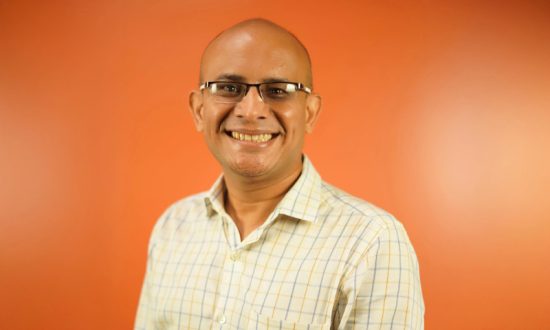Virag Thakkar holds over 2 decades of experience in Cyber & Information Security covering Compliance & Privacy Frameworks, Risk Management & establishing Security Operations. He has worked across multiple industries like Insurance, Ecommerce, Energy Verticals, Software Product Development and Government institutions.
Recently, in an exclusive interview with CIO Magazine, Virag shared insights on the evolution of the cybersecurity landscape in the next 5-10 years, personal hobbies and interests, future plans, words of wisdom, and much more. The following excerpts are taken from the interview.
Hi Virag. What inspired you to pursue a career in information and cyber security, and how have you seen the field evolve over time?
I stumbled into cybersecurity during my early days in IT, when I realized programming wasn’t for me, but securing networks and infrastructure fascinated me. What started as curiosity turned into a career when I saw firsthand how critical security is for businesses. Over time, the field has shifted from being a purely technical domain to a strategic business enabler. The rise of cloud computing, AI-driven threats, and regulatory frameworks has made security an essential pillar of any organization’s success.
What do you love the most about your current role?
The ability to drive change. I enjoy taking security from a checkbox exercise to a culture that people engage with. Seeing an organization shift its mindset—where security is no longer seen as a blocker but a business enabler—is incredibly rewarding.
What role do you believe security leaders will play in shaping the future of business and technology, and how can they prepare for this shift?
Security leaders will be the bridge between innovation and risk, ensuring that new technologies are adopted securely without stifling business growth. To prepare, security leaders must develop business acumen, strong communication skills, and the ability to influence at the board level. The future CISO will be as much a strategist as a technologist.
What are some common misconceptions or myths about security and compliance that you’d like to debunk?
One big myth is that compliance equals security. While compliance frameworks set a baseline, true security goes beyond checklists. Another misconception is that cybersecurity is purely an IT problem—it’s actually a business-wide responsibility.
How do you see the cybersecurity landscape evolving in the next 5-10 years, and what skills and qualities do you believe will be essential for success in the field?
Cybersecurity will become more AI-driven, both in attack methods and defense strategies. The rise of quantum computing and evolving privacy regulations will add complexity. To succeed, professionals will need adaptability, a continuous learning mindset, and strong problem-solving skills. Soft skills, especially communication and risk management, will be just as important as technical expertise.
How do you approach leadership and team management, and what qualities do you believe are essential for effective leadership in security?
I believe in leading with a vision and empowering my team. Security can be stressful, so fostering a culture of trust, mentorship, and continuous learning is key. The best security leaders are those who can communicate effectively, inspire action, and translate technical risks into business impact.
Is there a particular person you are grateful for who helped get you to where you are?
Yes, my ex-manager and now mentor, who saw my potential in security early on and encouraged me to pursue it. His guidance and belief in me helped shape my career.
What are some of your passions outside of work? What do you like to do in your time off?
I love playing board games / card games with loved ones and having a nice conversation alongside. Also enjoy going off for scuba diving as and when time permits.
What is your biggest goal? Where do you see yourself 5 years from now?
Beyond my professional aspirations, I want to build a lifestyle that gives me the freedom to pursue my passions, mentoring the next generation of professionals. In five years, I see myself having a more things to contribute in the world of startups. I am very excited by new ideas and how they can shape our world.
What advice would you give to individuals looking to break into the field of information and cyber security?
Stay curious and never stop learning. Cybersecurity is an ever-evolving field, and those who thrive are the ones who continuously adapt. Get hands-on experience, build a strong foundation in networking and security basics, and most importantly, develop the ability to communicate risks effectively. Security is not just about technology—it’s about understanding people, processes, and business impact.

